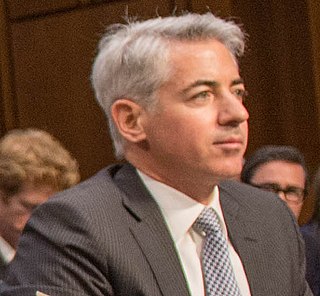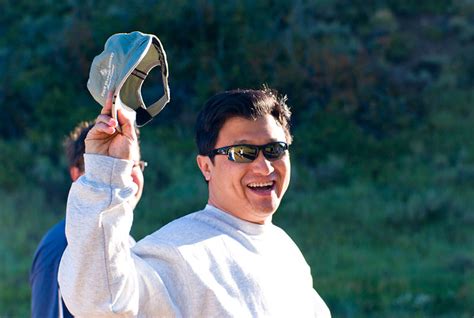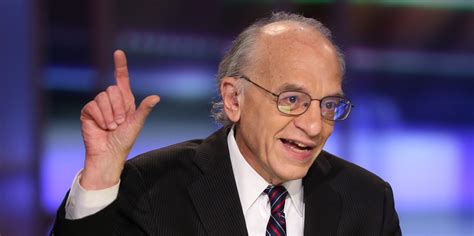A Quote by Eugene Fama
Active investment is a zero-sum game. Passive managers don't play the game. They buy something resembling the market as a whole, or some segment of the market, and they don't respond to the actions of active managers.
Related Quotes
Index funds have regularly produced rates of return exceeding those of active managers by close to 2 percentage points. Active management as a whole cannot achieve gross returns exceeding the market as a while and therefore they must, on average, underperform the indexes by the amount of these expense and transaction costs disadvantages.
As a result of overdiversification, their (active managers) returns get watered down. Diversification covers up ignorance. Active managers haven't done enough research into any of their companies. If managers have 200 positions, do you think they know what's going on at any one of those companies at this moment?
People would be a lot more skeptical if they understood that there is an incredible amount of chance in the results that you observe for active managers. So the distribution of outcomes is enormously wide - but that's exactly what you'd expect by chance with lots of active managers who hold imperfectly diversified portfolios. The really good portfolios contain a lot of really lucky picks, and the really bad portfolios contain a lot of really unlucky picks as well as some really bad ones.
The mistake managers often make is defining their industry too narrowly. Digital's market share in the minicomputer market stayed very robust even as it fell off the cliff. Disruption seems to come out of nowhere, but if you know what to look for, you can spot important developments well before the market does.
I think there are probably too many hedge fund managers in the world, as well as active fund managers. The hedge fund industry is very efficient. We see a lot of hedge funds open and a lot close. It's very binary. You either succeed or fail in the hedge fund world. If you succeed, the amount the managers make it beyond most people's wildest dreams of wealth.
It can be shown that maximum diversification is achieved by holding each stock in proportion to its value to the entire market (italics added)... Hindsight plays tricks on our minds... often distorts the past and encourages us to play hunches and outguess other investors, who in turn are playing the same game. For most of us, trying to beat the market leads to disastrous results... our actions lead to much lower returns than can be achieved by just staying in the market.
One problem with politics is that it is a zero sum game, i.e. politicians argue how to cut the pie smaller and smaller, by reshuffling pieces of the pie. I think this is destructive. Instead, we should be creating a bigger pie, i.e. funding the science that is the source of all our prosperity. Science is not a zero sum game.
The problem that people don't understand is that active managers, almost by definition, have to be poorly diversified. Otherwise, they're not really active. They have to make bets. What that means is there's a huge dispersion of outcomes that are totally consistent with just chance. There's no skill involved it. It's just good luck or bad luck.


































